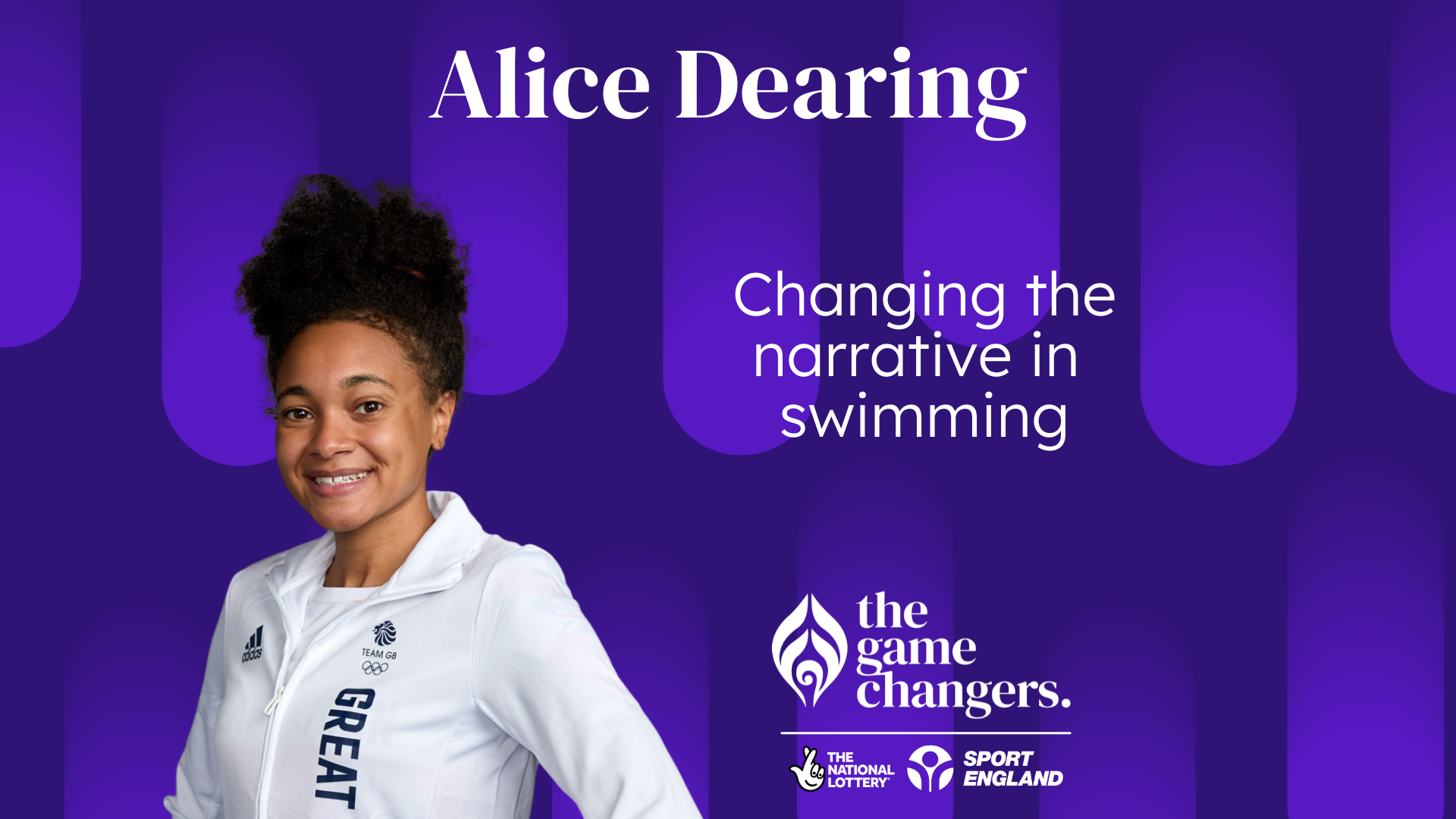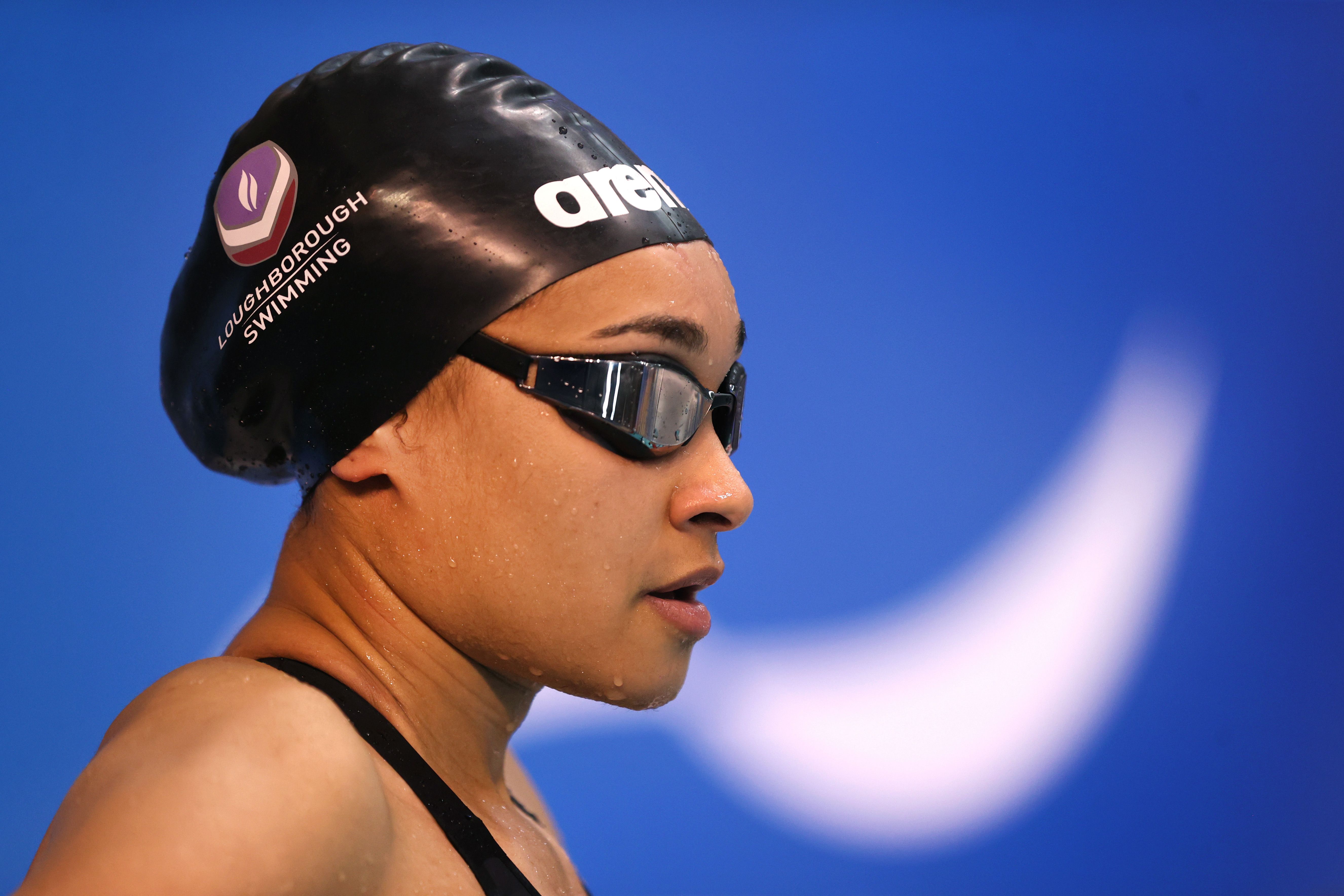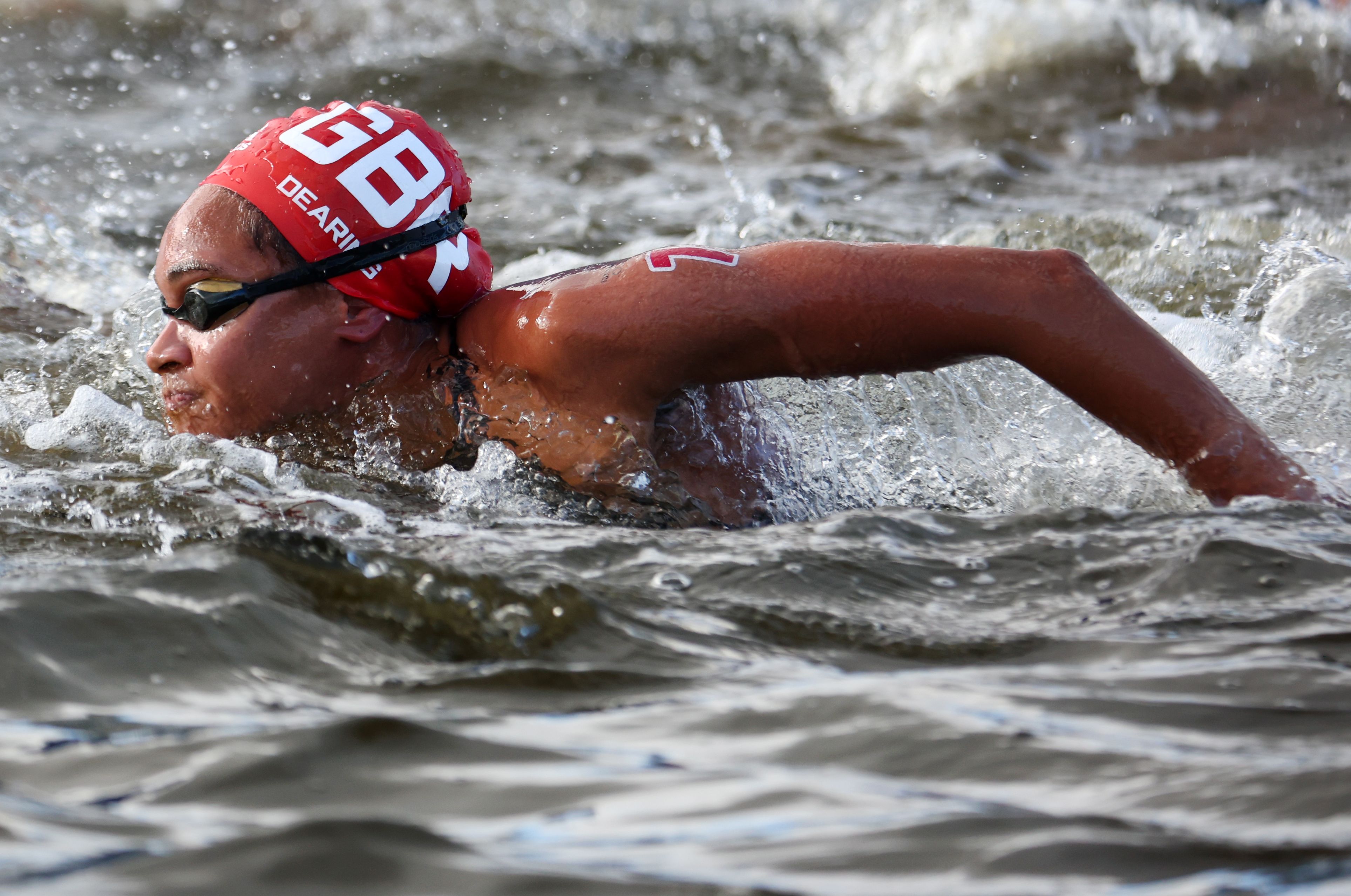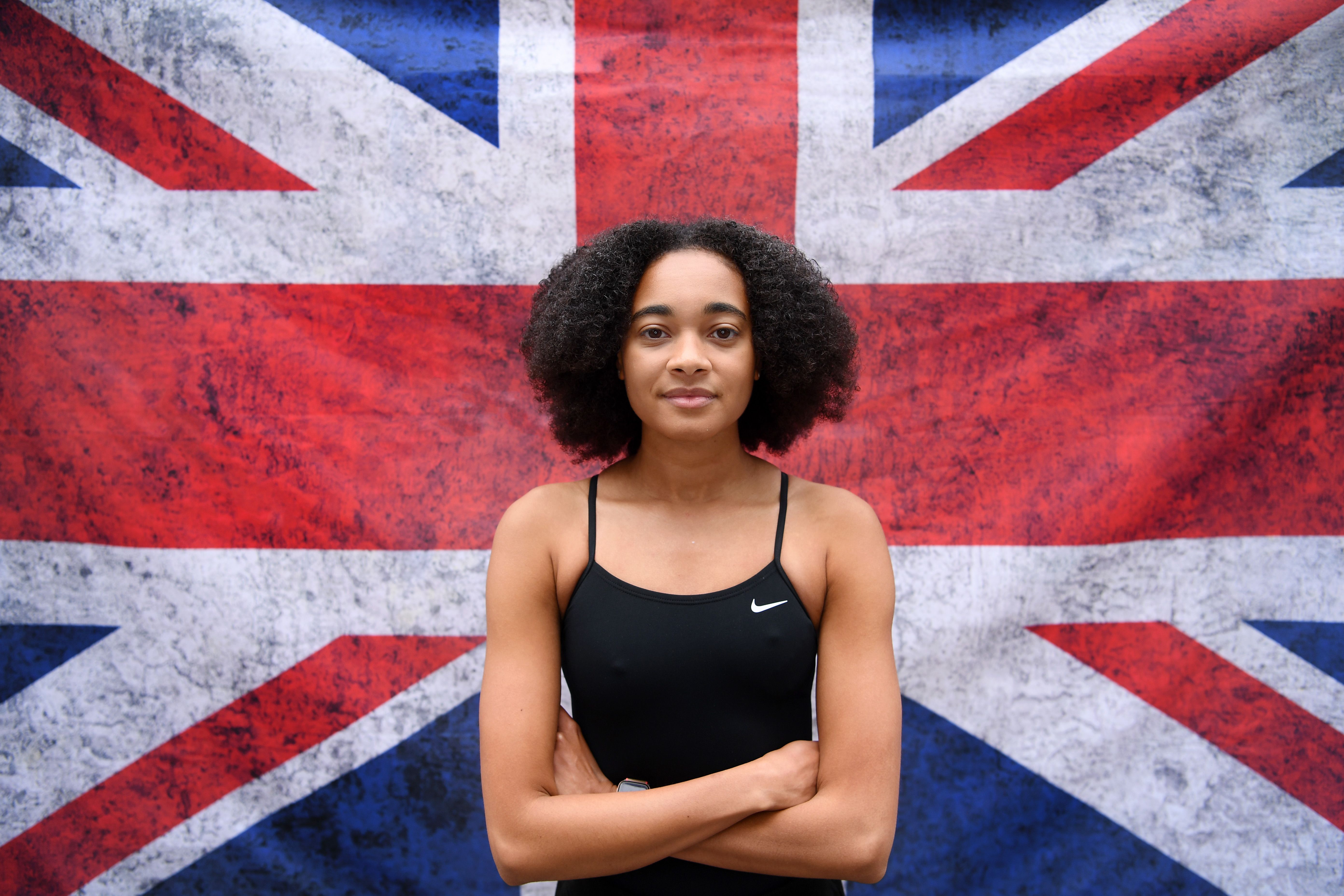Swimming trailblazer Alice Dearing was one of the latest guests on the new season of The Game Changers podcast.The 25-year-old made a crucial piece of history last year when she became the first black female swimmer to represent Great Britain at the Olympics. Dearing is also the co-founder of the Black Swimming Association, an organisation that advocates water safety and aquatic inclusion for individuals of African, Caribbean and Asian heritage.Speaking to Sue Anstiss on The Game Changers, Dearing discussed the early stages of her career, training as a woman of Ghanian heritage, and her milestone for diversity in sport at Tokyo 2020.
A passion for the water
Dearing specialises in open water events, meaning she mainly competes in outdoor bodies of water such as lakes and oceans.
In 2016, she won Britain's first ever gold medal at the World Junior Open Water Championship by winning the 10km event. She has since competed at the World Aquatics Championships and the Olympic Games, but like all sporting passions, Dearing's hard work started from a young age.
She looked back at just how much time and commitment she set aside for swimming when she was just a child, and on reflection, can barely believe it.
SHEFFIELD, ENGLAND - APRIL 05: Alice Dearing of Team Loughborough University prepares to compete in the Women's 200m freesty during day one of the Brat Ponds Forge on April 05, 2022 in Sheffield, England. (Photo by Alex Pantling/Getty Images)
"We started off with one session a week and then [it] quickly escalated to two, and then three, four. By the time I was nine, I think I was swimming six times a week, which is kind of crazy.
"From age 11, I was doing seven sessions a week and now I've currently progressed to 10 sessions a week. So it's been crazy. Like when I say it all out loud, it sounds absolutely insane. And I don't really know how me and my mum did it.
"She would wake up at 4.30 in the morning, take me to school, she'd come back home. I would swim, do school, swim again at the end of the day. And then she'd pick me up at like half seven, take me home, eat, sleep, and then do it all again the next day."
TOKYO, JAPAN - AUGUST 04: Alice Dearing of Team Great Britain competes in the Women's 10km Marathon Swimming on day twelve of the Tokyo 2020 Olympic Games at Odaiba Marine Park on August 04, 2021 in Tokyo, Japan. (Photo by Clive Rose/Getty Images)
Dearing discussed how her mum was always encouraging of her passion to swim but would be patient during times where she thought she wanted to give up.
The early mornings, late evenings and long weeks of training often took its toll, but a fire had been lit that could not be put out.
"Honestly, I don't know what I would've done with my time without swimming, it's a huge part of who I am and she [her mum] recognised that very early on and encouraged me to keep going with her.
"And it was never to the point where it was pushy — she always balanced it so well. Sometimes you do need a bit of a push, but never to the point where I felt like I was doing it for her or for my family in any way."
Becoming an Olympic icon
Dearing grew up in Sandwell, Birmingham and as a result, enjoyed a childhood as part of a multicultural community.
When she first got into swimming at just eight or nine years of age, Dearing was able to enjoy meeting other children like herself during club sessions, which is something she has recognised is not always the case in other areas of the country.
"We were never the only family of colour in those swimming clubs, and I honestly never really thought about race," the Olympian reflected. "It never occurred to me that I was like an odd one out in any way.
"Every now and again, I'd get some little wake up calls that there is a wider issue that you are not aware of. But as a whole, I had a really positive experience and there was never anything that stopped me from wanting to swim because of my race, thankfully."
At the 2020 Olympics, Dearing became a role model when she wrote a huge piece of history for her country.
Her participation at Tokyo made her the first black woman and just the second ever black athlete to represent Great Britain in swimming at the Games.
LOUGHBOROUGH, ENGLAND - JUNE 05: GB Open Water Swimmer Alice Dearing poses for a portrait at her home on June 05, 2020 in Loughborough, England. (Photo by Laurence Griffiths/Getty Images)
A year prior, Dearing and three others kick-started the Black Swimming Association with the aim to break down barriers and squash stigmas in the world of aquatics.
The BSA is backed by the Royal National Lifeboat Institution (RNLI), Speedo, Sport England, and Sport Wales.
"We are doing some amazing research with the RNLI around bone density and physiology," Dearing explained. "So we're kind of looking to disprove this idea that black people's bones are too dense to float or that black people can't float as well as white people, and we're also looking into the cultural reasons why people don't swim.
"So what issues are black and Asian minorities facing when wanting to get in the water or maybe even not wanting to get in the water and what do they feel is preventing them from doing so? And so basically, we're looking for the BSA to be the bridge between black and Asian communities and the aquatic sector."
Dearing is also trying to separate from the idea that swimming is a "sport or something quite privileged" and focus more on the fact that it is "an essential life skill" that should be learned and encouraged.
"It should be something that everybody has fair and equal access to, an opportunity to be able to swim if they want to go onto competitive swimming, that's absolutely great. But if not being able to swim 25 metres comfortably, tread water, be comfortable with your face in the water — these are all basic things, which everybody should have access to and hopefully everybody should learn."
This article was produced in partnership with The Game Changers podcast, which is supported by Sport England. You can listen to the full episode with Alice Dearing here.




















